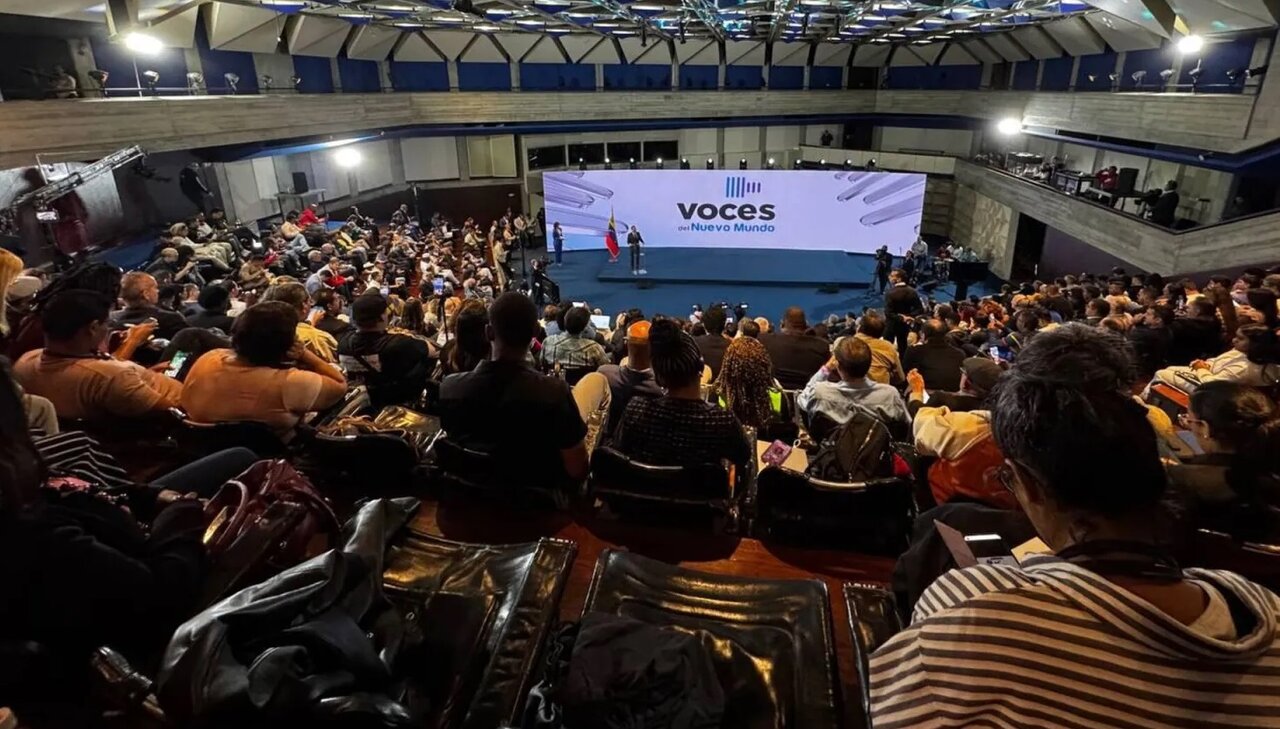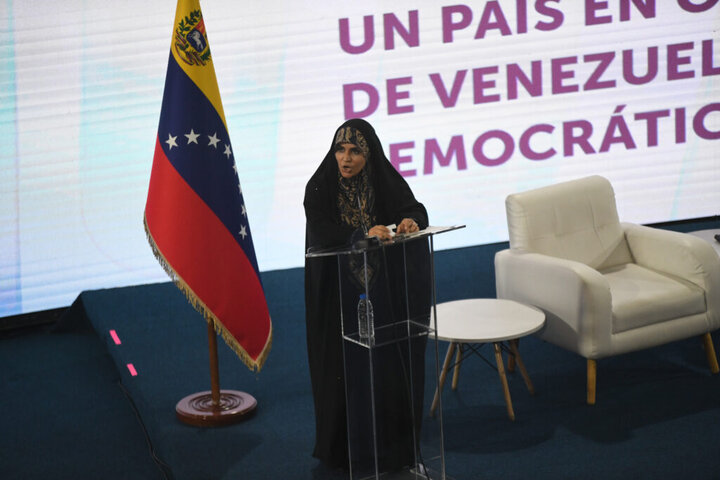Voices of new world: Journalists from 50 nations unite for multipolar media landscape

CARACAS – In a landmark gathering held on July 30–31, more than 200 journalists, communicators, researchers, and influencers from nearly 50 countries convened in Caracas for the “Voices of the New World” forum. Participants pledged to form a global alliance aimed at challenging the dominance of Western narratives in international media.
Held under the auspices of Venezuela’s Ministry of Foreign Affairs, the event sought to establish a new international information order grounded in “truth, cultural sovereignty, and solidarity”, in particular, among nations of the Global South. As mentioned by organists, the initiative aims to counterbalance what delegates described as the “hegemonic narratives imposed by Western media conglomerates”.
The forum’s central message was clear: in the face of an intensified global media war that distorts the struggles and realities of the Global South, unity is essential. “Faced with the media blockade, one of the most brutal weapons of the multidimensional war on the peoples of the Global South, unity becomes our trench,” the organizers emphasized.
The final declaration described the new alliance as a permanent space for action where communicators could collaborate to defend informational sovereignty, promote cultural diversity, and articulate the vision of a multipolar world. Delegates also affirmed the importance of truth as a fundamental right, to live it, to tell it, and to know it.
The forum addressed a broad array of topics: from media manipulation and disinformation to digital sovereignty and the role of alternative platforms. Panels and micro-workshops tackled freedom of speech, conflict reporting, algorithmic bias, and the strategic use of digital networks.
Venezuelan Foreign Minister Yván Gil, in his opening remarks, called for stronger, louder voices to counter the rising tide of “media imperialism.” “Our voices have to be increasingly stronger, more intense,” he said. “We must create an alliance among platforms to make our truth heard in the world.”
Prominent Venezuelan communicator and lawmaker Gustavo Villapol warned about the psychological effects of algorithm-driven platforms. Russian media specialist Daria Yuryeva echoed these concerns, urging communicators to study and adapt to the algorithmic landscape. She proposed building new digital platforms with democratic usage policies to escape the restrictions imposed by dominant tech powers.
Brazilian political scientist Fernando Horta called for technological independence in the Global South, emphasizing that without its own social technologies, the region would remain vulnerable to manipulation. Ayanda Hollow of South Africa similarly stressed the importance of digital sovereignty, stating that true media independence requires local ownership of platforms and content distribution.
Another South African delegate, Nonkululeko Patricia Mantula, advocated for a new era of journalism free from colonial narratives. She criticized the global media’s tendency to misrepresent countries like South Africa, reducing them to images of poverty and instability. She called for collaborative media networks that transcend language barriers and are rooted in local realities.
In a recorded address, Jiang Yan, Director-General of China’s Xinhua News Agency’s Latin America Bureau, described the fight against disinformation as a shared struggle. “Unity is the fundamental tool to face current challenges,” he emphasized.
The alliance will serve as a content-sharing network, a space for joint training, and a mechanism to defend journalists under attack. It also aims to confront censorship and algorithmic control by promoting “sovereign digital tools” that enable liberating communication.
In addition, delegates repeatedly reaffirmed the importance of media cooperation within the BRICS countries and beyond. Special focus was given to enhancing collaboration across Latin America, Africa, and Asia, creating platforms capable of disrupting dominant Western narratives and supporting locally anchored stories.
Iranian journalist honored for exemplary work

As part of the event, Sahar Emami, an Iranian television anchor and journalist, was honored as a special guest and recognized as an exemplary journalist. Her presence at the event underscored both the significance of solidarity among Global South nations and Iran’s influential role in shaping a unified media front against dominant Western narratives.
In her remarks, Emami emphasized the urgent need for the emergence of unified global voices, stating that defending the truth and standing up for justice require collective effort and shared commitment. “Only through unity and a common voice,” she noted, “can we strike a blow against the structures of colonialism.” Emami also responded to questions from several attending journalists.
Emami drew global attention when she continued broadcasting live just moments after an Israeli airstrike targeted the Iranian state broadcasting headquarters. Her solid stance made her a symbol of resistance for Iran and its allies, earning her widespread recognition and respect.
A bold stance on Palestine and global injustices
The forum concluded with a powerful message of solidarity for oppressed peoples, particularly the Palestinian cause. Venezuelan National Assembly President Jorge Rodríguez condemned what he described as genocide in Gaza. “The worst crime perpetrated on humanity in the 21st century is the extermination and genocide of Gaza,” Rodríguez declared.
He further accused Israeli Prime Minister Benjamin Netanyahu of crimes against humanity, referring to him as a “cynic” and “genocidaire (who commit acts of genocide)”. Rodríguez also reiterated Venezuela’s stance against “North American imperialism,” calling it a serious threat to global peace.
In the words of the final declaration: “To respect and defend the truth, freedom of expression, and the sovereign and independent development of our peoples is a duty for those of us who dedicate ourselves to journalism and communication with honesty.”
Cultural celebration and local engagement
Beyond its intellectual debates, the forum featured cultural events and local outreach. Delegates visited productive and tourist sites in Venezuela’s Aragua state. A symbolic highlight was the gala concert “The Birth of a World,” held at Caracas’ historic Municipal Theater.
The performance, which celebrated the spiritual and rebellious roots of “Our America,” featured dancers and musicians from Venezuela, Cuba, Bolivia, Mexico, Argentina, and Brazil. Special guests included the Venezuelan Youth Orchestra System and Viengsay Valdés, director of Cuba’s National Ballet.
With hundreds participating both in person and virtually, the Voices of the New World forum has laid the foundation for a fresh global media movement that seeks equity, truth, and the right of all nations to tell their own stories.
AM
Leave a Comment